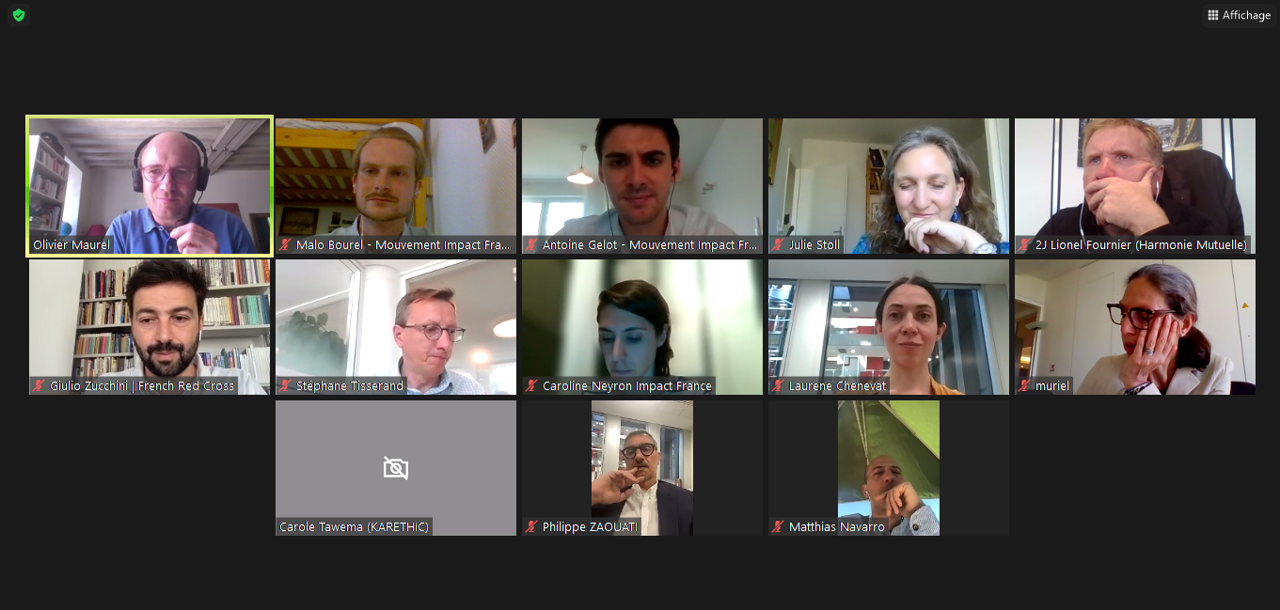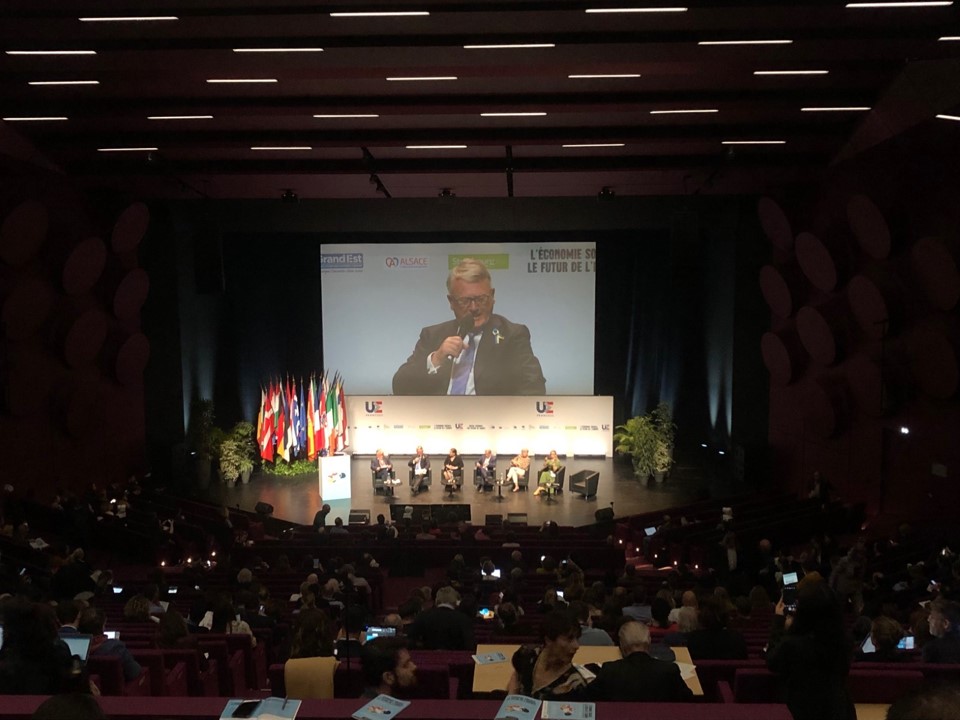French Presidency of the EU Council: time to take stock
.jpg)
.jpg)
From January 1st to June 30th, France held the presidency of the Council of the European Union. During these 6 months, and despite the heavy geopolitical context, Europe continued its action and the Impact France Movement was at the forefront to formulate ambitious proposals aimed at accelerating the transformation of companies in response to major social and environmental challenges on various themes: sustainable corporate governance, fight against climate change, development of the social economy, protection of biodiversity, etc.
The Impact France Movement took advantage of the PFUE to develop and refine its European advocacy around its two key battles: the development of a favorable framework for the emergence of impact companies, and the acceleration of the ecological and social transformation of companies at the European level.
We have met with MEPs from several parties, networks and actors of the ecosystem, and have been heard by the European Commission to defend our vision of the economy.
We have responded to public consultations and participated in several European events, in Brussels and Strasbourg, to discuss, explain and convince of the merits of our action and the need to quickly change the rules of the economic game.
We have taken positions on a large number of texts to strengthen the ambition of the legislation and to make the voice of committed entrepreneurs heard in Brussels.

In order to achieve the objective of carbon neutrality by 2050, the European Union has clearly understood that companies are part of the solution. They must adapt and transform themselves to meet the challenges.
This will require new, more ambitious rules on non-financial reporting for large companies. This is the purpose of the Sustainability Reporting Directive (SRD), provisionally adopted in trialogue at the end of June, which will require large companies to communicate information on their impact on the environment, human rights, social standards and work ethics. While the common reference framework on which extra-financial reporting will be based is currently being developed, we hope, and this is the direction of our action for several months, that it will be largely inspired by the Impact Score.
The CSRD will be complemented by the ESAP regulation, which, once adopted by the EU Council and Parliament, will create a single access point for financial and extra-financial information on companies: an important text that could allow the establishment of an ESG rating system for companies, to allow investors, but also indirectly consumers, to better identify the most virtuous companies.
Another issue that Impact France is closely following, and which is complementary to the CSRD and the future ESAP regulation, is the publication on February 23 by the European Commission of a proposal for a directive aimed at introducing a European duty of care binding on companies, and improving the way environmental and social issues are taken into account in corporate governance and operations. We are mobilized to make this text an effective lever for the transformation of European companies, notably by integrating real incentives for sustainable corporate governance.
Other texts and draft texts relating to the implementation of a more virtuous economic ecosystem, such as the regulation aimed at reducing deforestation and forest degradation for which the European Union is responsible, or the repeated requests of the European Parliament to implement a commercial tool intended to ban products resulting from forced labor from the European market, are currently under discussion within the European institutions.
In addition, the European Parliament and the Council of the European Union have adopted their respective positions in recent weeks on numerous texts of the #FitFor55 package presented by the European Commission in July 2021 and which aims to reduce greenhouse gas emissions by 55% by 2030. For the European Union, which claims to be the pioneer power in the fight against global warming, the next few weeks will be decisive for the final adoption of many important texts for climate protection.
For example, the establishment of a fair and efficient carbon tax at the European Union's borders, a priority of the EUFP, is on the right track. Indeed, the adoption in trialogue of the carbon adjustment mechanism at the borders, coupled with the revision of the allowance trading system, should take place very soon. Presented as a key tool in the fight against global warming, the mechanism aims to accelerate the ecological transition of the continent's industries by avoiding massive relocation to countries with more flexible environmental standards. In recent months, The Impact France Movement has ambitiously defended its proposals to make this carbon tax a fair and effective transition measure In recent months, we have been heard on several points (gradual abolition of the system of free quota allocations, open door for a gradual extension of the carbon tax to other sectors of activity whose transformation is urgent, etc.) and will ensure that our demands are not diluted in the inter-institutional agreement that will result from future trilogues.
The co-legislators have also taken positions on other important texts, such as the regulation that will ban the sale of new cars with internal combustion engines in 2035 and the initiative to better regulate the green bond market and reduce greenwashing, and are now waiting for the end of the negotiations in trialogue.
Social Europe, reality or chimera? In recent months, the PFUE has made its development a priority. It has succeeded, with the adoption of no less than two texts that increase the social pillar of European construction. First, the "Women on Boards" directive will require listed companies to have 33% women on their boards of directors or 40% of non-executive board members by 2026. The directive on adequate minimum wages will promote upward convergence of minimum wages in member states that have them. The only fly in the ointment is that the texts on the social climate fund and on salary transparency have not been agreed between Member States and MEPs, although this could be resolved in the coming weeks.
Published last December 9, the Action Plan for the social economy was presented by Commissioner Nicolas Schmitt on February 17 at a conference attended by the former Secretary of State for the social and responsible economy, Olivia Grégoire. This Action Plan pursues ambitious objectives, such as setting up a political and legal framework favorable to social enterprises, creating development opportunities for SSE actors and ensuring recognition of the sector and its potential. Among the interesting avenues, the revision of the GBER in 2023 could, for example, make the incentive schemes of state aid for investment more accessible to social enterprises. Another avenue currently being explored by the European Commission is the creation of a single European label for the social economy, which could be inspired by the ESUS accreditation, according to Nicolas Schmitt.

Faced with these challenges, the Impact France Movement will continue its activities at the European level in the coming months. Because the ecological and social urgency is no longer to be proven, the teams of the Impact France Movement are fully mobilized so that Europe becomes the breeding ground of tomorrow's sustainable economy.